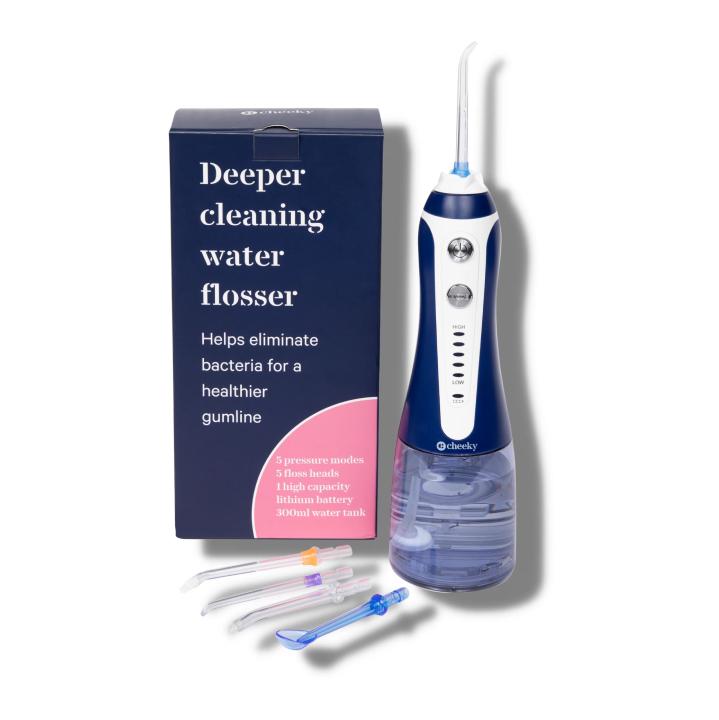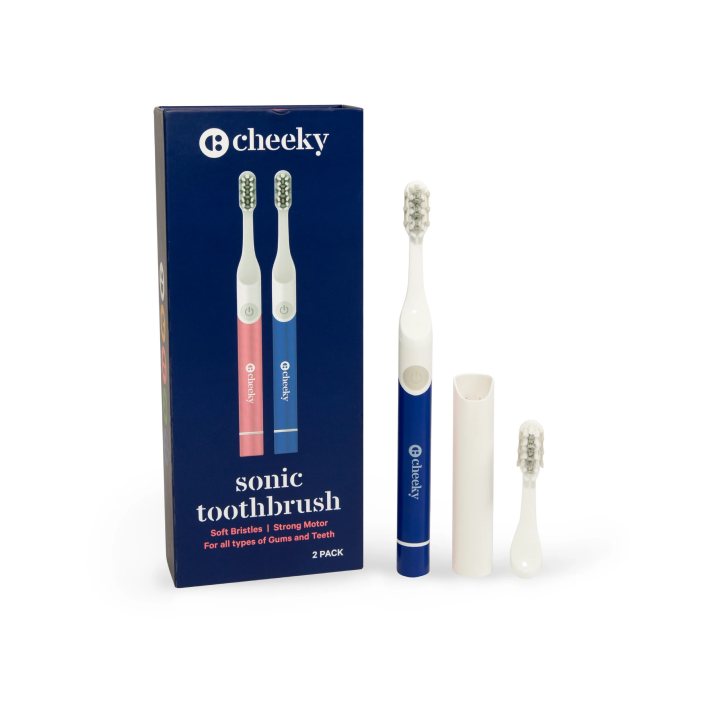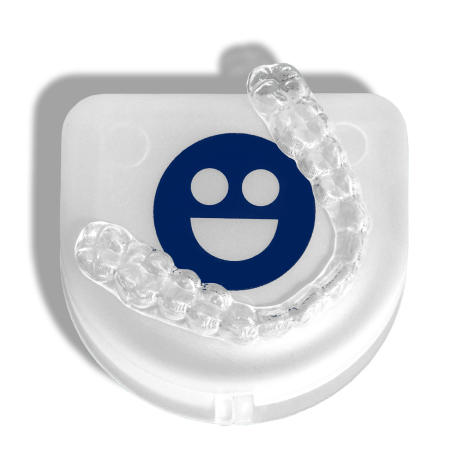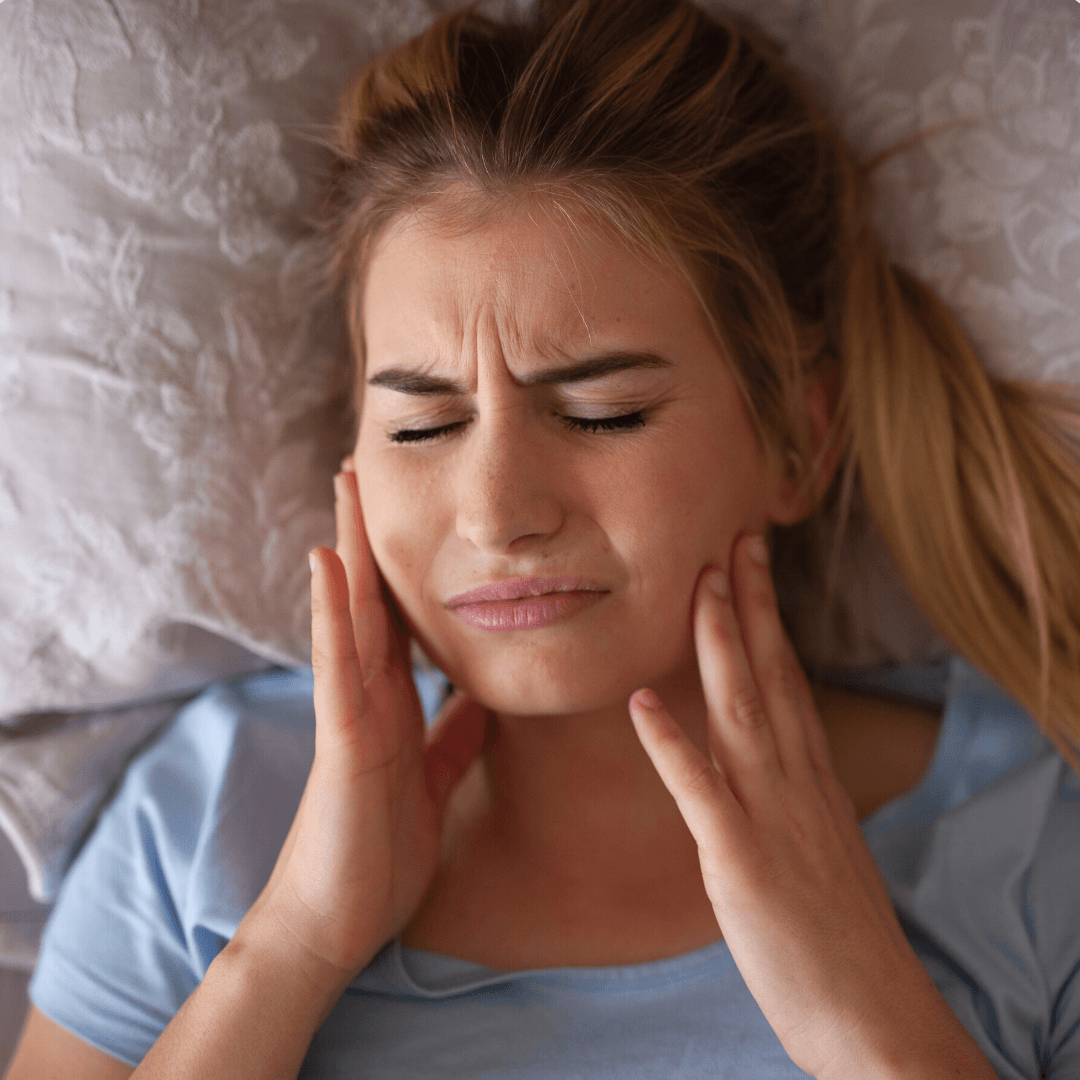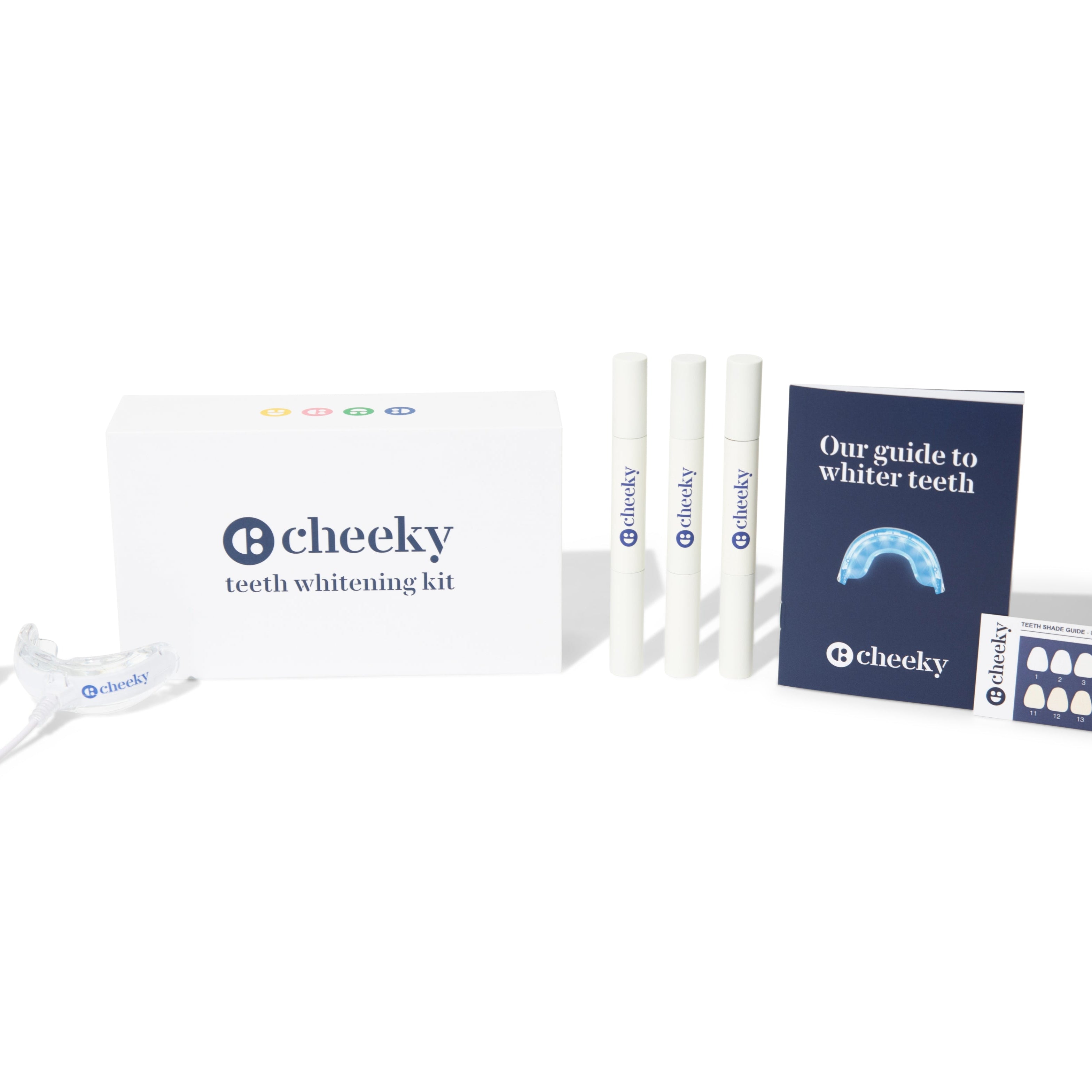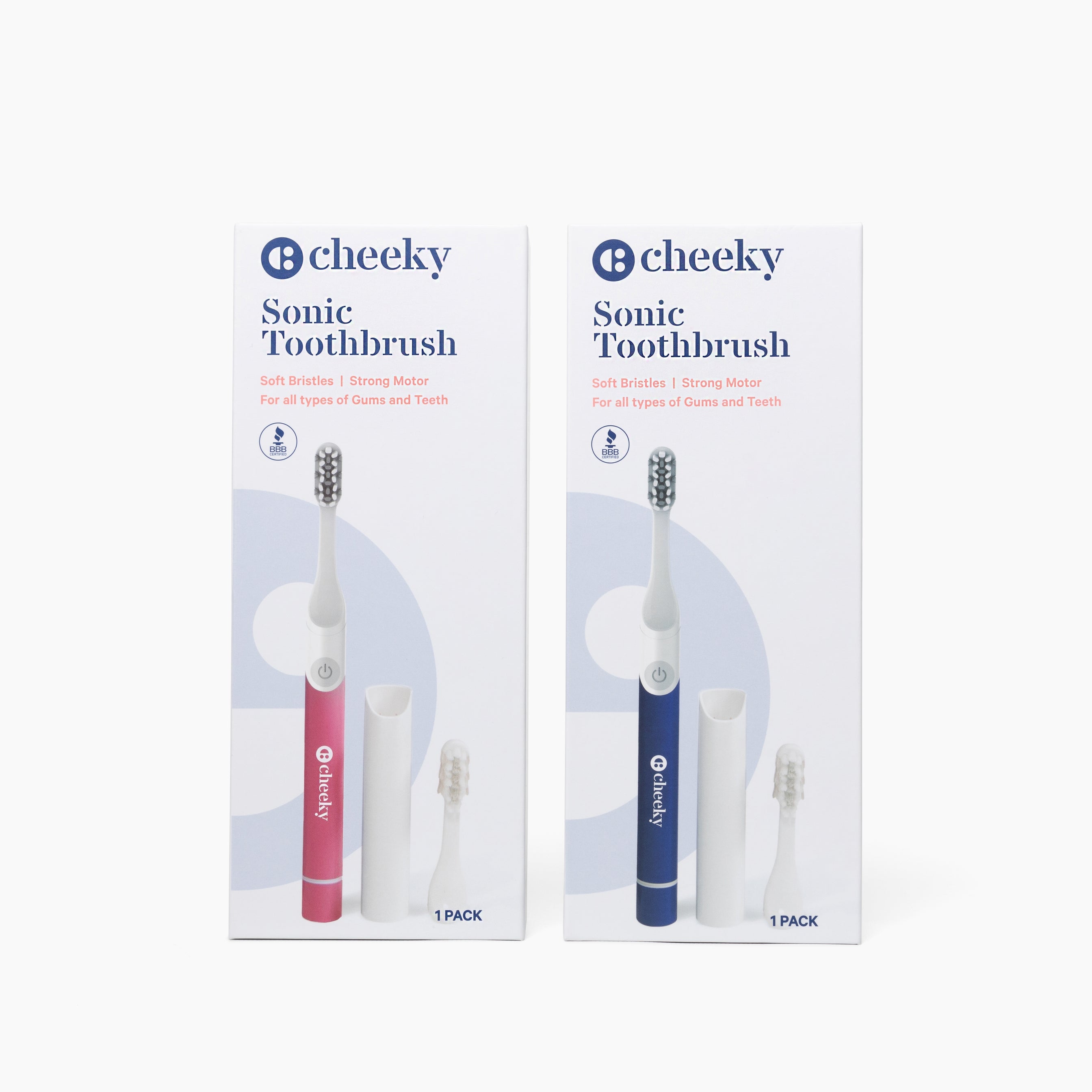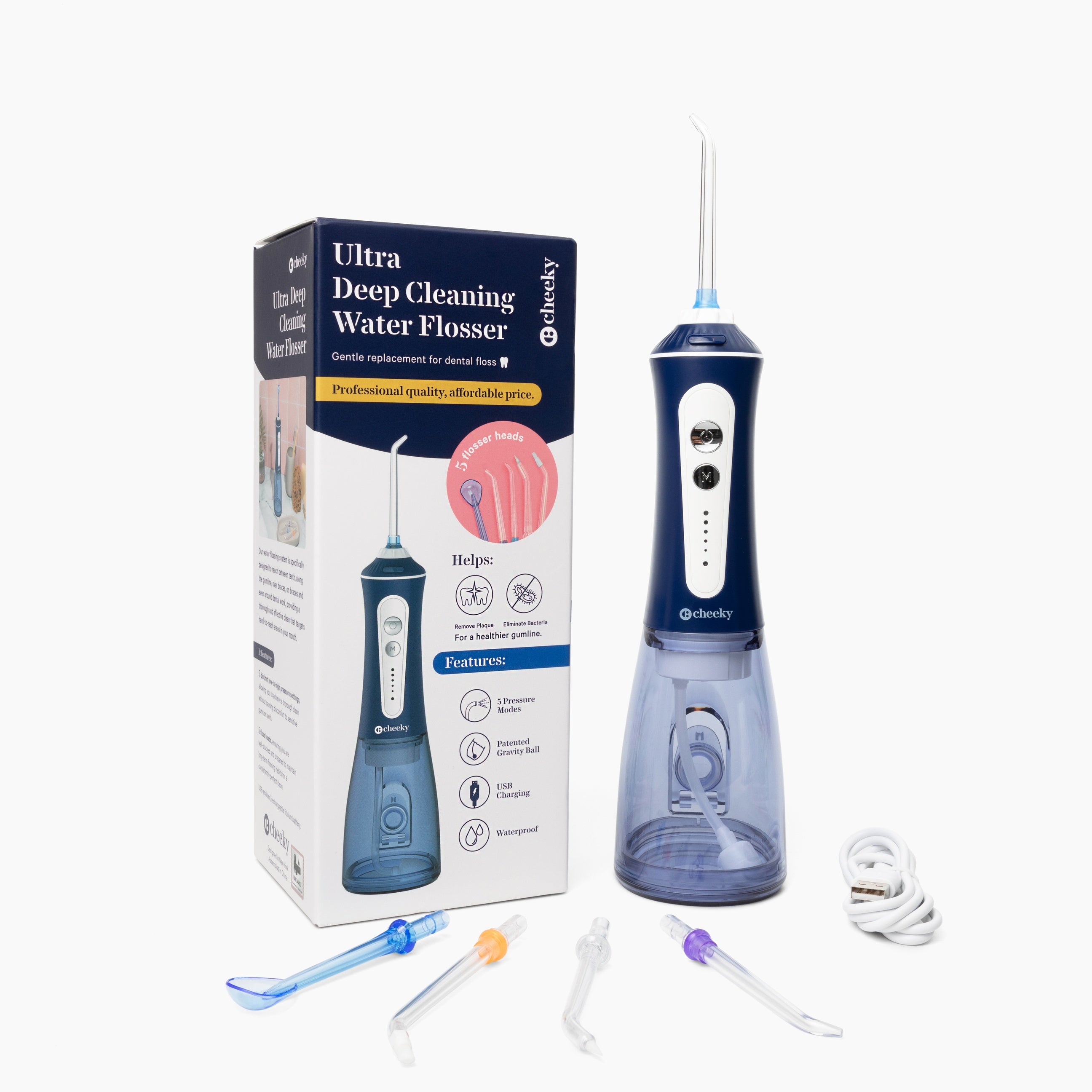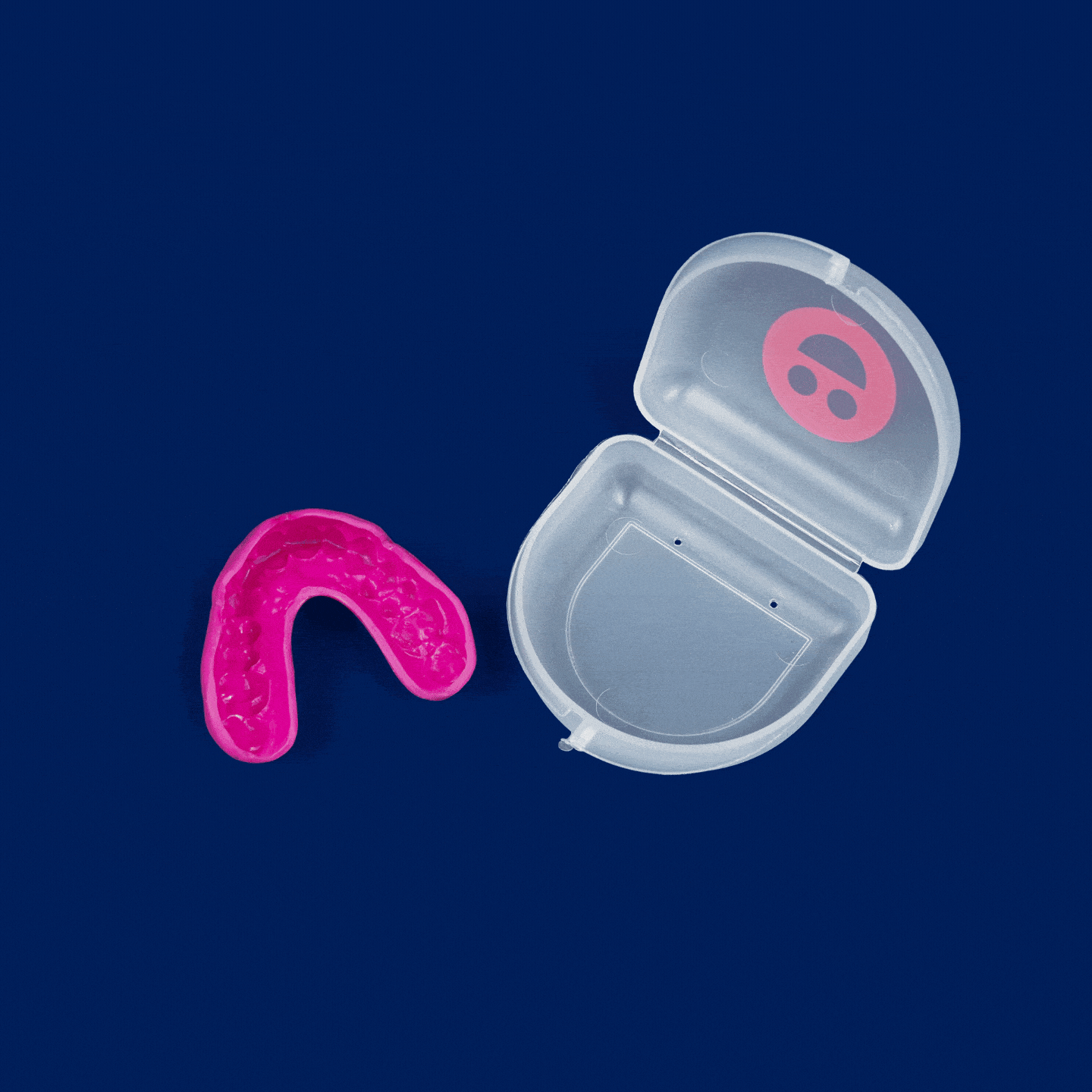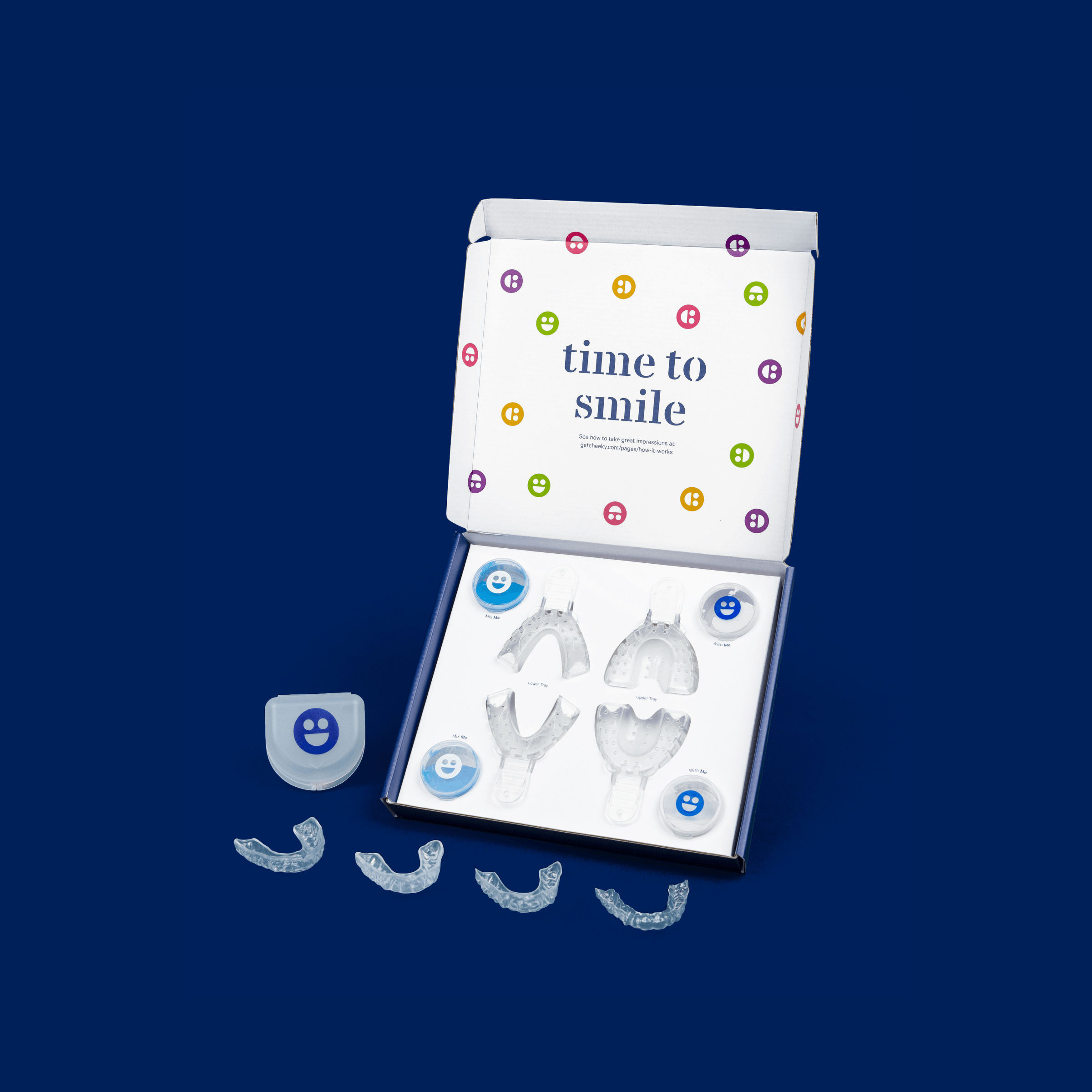Is Teeth Grinding Causing Me Pain?
If you’re experiencing jaw pain, earaches, headaches, neck pain, facial pain, tooth sensitivity, or facial soreness, you’re probably wondering what’s going on. There’s a pretty good chance that the source of your problems is bruxism.
Bruxism is the fancy word for teeth grinding, and most people don’t even realize they’re doing it because it happens when they’re sleeping. Sometimes bruxism results from stress, a temporomandibular joint disorder (TMJ or TMD), or as a side effect of another condition.
Treating bruxism can help relieve some of the pain you’re feeling. Let’s take a look at what happens when you grind your teeth, why you’re grinding in the first place, and how to treat bruxism.
What happens when you grind?
When you clench your jaw, your upper and lower lines of teeth clash against each other, putting a lot of pressure on your teeth and jaw.
Over time, grinding wears down the protective enamel coating on your teeth and the dentin underneath the enamel, exposing your teeth to potential cavities and disease. Long-term tooth wear can expose the nerves of your teeth, leading to tooth sensitivity and pain.
If the pressure from clenching or grinding becomes too much, your teeth may crack or break. It can also lead to tight jaw and facial muscles.
What causes teeth grinding?
Understanding why you grind your teeth is a valuable part of creating a treatment plan. However, pinpointing the exact cause of bruxism can be difficult. Some potential causes may include:
- Stress and anxiety
- Certain medications like antidepressants
- Crooked or misaligned teeth
- Sleep disorders like sleep apnea
- Nutritional deficiencies
- TMJ or TMD
- Other medical conditions
- Consumption of tobacco, alcohol, and coffee
Since bruxism is often a side effect of a more serious problem, working to solve the core problem can improve your overall health.
For instance, if stress or anxiety is why you’re grinding your teeth, you may want to work with a therapist to find ways to alleviate your stressors and cope with any triggers. Or, if the issue is a sleep disorder, you can see a specialist to develop a treatment plan.
You can talk to your dentist or primary care doctor about factors that might contribute to your bruxism to see if you can take steps to stop grinding. In the meantime, there are steps you can take to alleviate the symptoms.
How to Treat Teeth Pain from Grinding
As you work on the root cause of your grinding, you shouldn’t have to live with the tooth pain that comes along with bruxism.
If you think you have bruxism, you should go see your dentist as soon as possible. Your dentist will be able to check your teeth for any damage and confirm a diagnosis. Additionally, your dentist will be able to evaluate whether a TMJ issue is contributing to your bruxism.
Truthfully, you should see your dentist anytime you’re experiencing tooth pain. Trust us; it’s not a good idea to wait to see if things improve on their own.
Let’s look at some of the most common ways to treat bruxism.
Get a night guard
Night guards are one of the most effective ways to treat sleep bruxism. These handy-dandy little mouth guards rest on your upper or lower layer of teeth to protect your teeth from damage and jaw muscles from strain.
You can buy an over-the-counter night guard as a temporary solution, but they’re often bulky and uncomfortable.
Custom night guards are more effective and more comfortable because they’re crafted to fit your mouth. Getting a custom mouthguard has traditionally involved an expensive trip to the dentist, but now you can order an affordable custom mouthguard from the comfort of your couch.
Get a dentist made splint
If your bruxism is a result of TMJ or leads to TMJ (because yes, it goes both ways), your dentist may want to fit you for a splint.
Splints work to improve your jaw’s function and alignment to reduce tooth pain while relieving pressure and tension in your jaw. Your dentist will recommend a splint based on how severe your TMD is.
Try to manage stress
Even if stress isn’t the primary cause of your bruxism, reducing stress can help you from making things worse.
Some ways to reduce stress in your daily life include:
- Exercise
- Meditation
- Yoga
- Therapy
Make some lifestyle changes
Treating bruxism may also look like treating some other nasty habits you have. Some behavioral adjustments you may want to make to reduce teeth grinding include:
- Avoiding stimulants at night (like caffeine, alcohol, and sugar)
- Quitting smoking
- Getting a good night’s sleep
- Actually visiting your dentist twice a year
Can we prevent teeth grinding?
This might be frustrating to read, but preventing teeth grinding is a lot like treating it. The best way to prevent bruxism is to eliminate the root cause of the grinding.
But we understand that identifying and getting rid of the reason behind bruxism can be difficult or impossible. It’s crucial that you schedule an appointment with your dentist if you feel pain in your teeth. Although preventing bruxism may be difficult, preventing cracked teeth, fillings, and root canals is easy when you treat your bruxism.
The best thing you can do to treat your bruxism is to invest in a custom mouthguard to use while you sleep.
Thankfully, getting a mouthguard today doesn’t have to be a choice between affordability and quality. Online companies offer dental-quality custom guards at prices that you can afford.
At Cheeky, we offer affordable custom nightguards made with FDA-approved materials, machinery, and processes. You can customize your guard, so you never miss a wink of sleep, and once we get your impressions, you’ll have a nightguard at your door in about a week. And you’ll never have to worry about your nightguard getting old because we’ll send you a replacement every three months.
To stop grinding your teeth and start feeling better, Get Cheeky.
